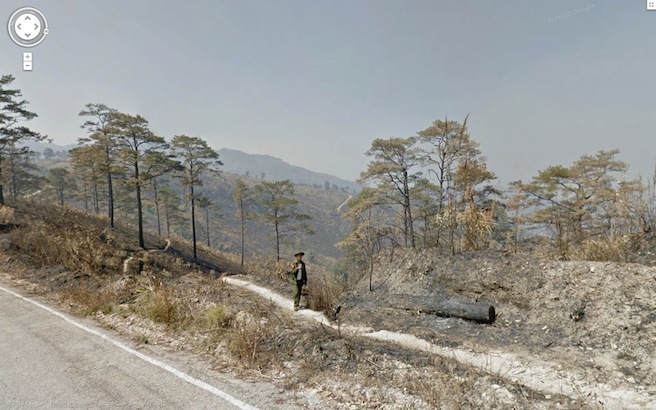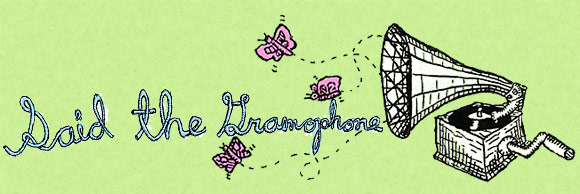
Colin Stetson - "Among the Sef (Righteous II)". Colin Stetson's third album is not the same terror or treasure that his last one was. New History Warfare Vol 2 felt mortal. It felt desperately mortal. The saxophonist's voice and breath, this unfurling force; dying as it unfurled, and striving as it died, striving & loving & hoping, clawing back the end. Stetson - a virtuoso and an athlete - made music that was suffused with vulnerability. Its weakness broke my heart into pieces.
There is little weakness to New History Warfare Vol 3, released this week. Its subtitle is To See More Light. Look at the cover: a black bird, rising from the wasteland. Listen to its songs, with Justin Vernon's hopeful croon. At times Stetson sounds threatened, or chased, but he never sounds doomed. Like the crow on the sleeve, these songs are ascendant. Their spirit seems puissant, victorious; whereas Vol 2 honoured - or at least held space for - fragility, Vol 3 is about gathering strength. Not mortality but immortality.
The result is a forceful, handsome work. Once again, Stetson weaves his compositions from endless strings of notes, arpeggios dancing across the room. He uses the rhythms of his fingers striking the saxophone's keys, the resonating hum in the horn, a roar that comes from somewhere in his chest. Vernon is an excellent companion, subtle and undaunted; with his presence, perhaps for the first time, Stetson's music gains a sense of safety. The musician calls out, or his sax calls out, and I imagine the call rippling out over the plains or the ice, like northern lights. Unlike the saxophonist's preceding work, I can imagine his call being answered. I can imagine the hymn being heard.
"Among the Sef (Righteous II)" is my favourite piece on the record. It is darting, birdlike. It flits, dives, searches. All these flickering notes, too fast to follow; the flutter of touches; the thin sound of Stetson drawing breath; then his animal voice, wordlessly lowing. I don't know if it's a prayer or a vow, and the message doesn't need to be understood. Here is a searching spirit, speaking its heart, without an audience. Like art in its purest form - a cave painting, a secret dance. A shout, a whisper, a song, for its own sake.
But this record is not often so lonely. On a later track, "What Are They Doing In Heaven Today?", Stetson and Vernon turn a song by Washington Phillips inside-out. Whereas the the original is troubled and fragile, this cover is confident, saved, like a riverside revival. I don't hear any of Phillips' lonesome, unsettled asking. Take the original lyrics, where the singer is full of questions:
What are they doing in heaven today?For that last line, the essence is its end. They say. Washington Phillips did not need to sing those words; he was a believer. He might have told us simply, as a promise, "Peace abounds like a river." But Phillips could not make this promise. He could not give us this certainty.
Where sin and sorrow are all done away?
'Peace abounds like a river,' they say.
When Vernon sings this chorus, "They say" feels like an afterthought. And the second question disappears.
What are they doing in heaven today?Such calm confidence, such serenity, over Stetson's blanket of glimmering notes. It's a beautiful reassurance.
The sin and sorrow are all done away.
But I don't believe in the reassurance. I feel shy writing this, as an acquaintance of Colin's, as someone who deeply respects and admires his work. If I hadn't been so moved by New History Warfare Vol 2, maybe I would be able to quietly love Vol 3 - to be bolstered by its impressive consolations. Maybe the stakes would not feel so high. Maybe if I were a believer, or a millionaire, or if society seemed like it was getting wiser, I would be able to take more solace in this album. I think the way you feel about To See More Light will depend on how much you believe in Stetson's reassurance, or how much you need it. I am happier in 2013 than I can remember ever having been before. But Stetson's earlier songs touched me more than all this gorgeous triumphing. I believed the laments more than the fanfares.
I'm still grateful for both.
+
Postscript, May 4: I went to see Colin last night, playing at Montreal's Sala Rossa.
"Who the Waves Are Roaring For" seemed like an Édith Piaf 45, old and rose, slowly sinking in the brine. "High Above a Grey Green Sea", questing & optimistic on the record, felt abandoned. It felt all-alone. The set was filled with shrieks and groans and the sound of shearing metal. The stage was pitted with little shipwrecks. It felt bloody. There were mistakes in the playing, hiccups and tiny failures. I guess I am trying to say it felt mortal. Stetson, so Olympian up there, also seemed so small. It was a crowded room. Sometimes, when the songs spread out like fabric, a painting of space & time in pinprick notes, like minimal techno, I was as aware of the crowd as of the man centered in spotlight. I tried to stay steady as I thought: a room full of human beings, almost all of us strangers.
If you are in Montreal, please find a way into his show tonight. Or else see him on tour this summer.
[buy]
With the first listen of Vol. 2, before I became familiar with it's twists and wrenches, it was like wanting to look away but being unable to - I'd think, this can't go on, and it would, and I'd feel sheer horror, but I didn't dare stop it. But this one song whenever a lull came I'd think, 'come back.' That probably puts me more in the needs-it than the believes-it crowd.
Which I guess means that I need this album? That's a good thing, right? I'm ok with that.
Posted by Ryan at May 3, 2013 2:47 PMwe all are here to serve each other, and your vision here serves the music, i believe. skillful insight like yours is as needed as rain in spring.
i saw a lot of hugging at both shows. a stranger even asked to hug me after the first night, she felt so moved and maybe even shattered. you would have loved the dialog between colin and the crowd on saturday – there seemed to be real joy and pain coming from the stage, absorbed in the bodies and furniture, echoing back "you're doing it, man! we're right here with you!" (amongst many other cries. perhaps people grew out of the trance of awe and into a collective and new physical consciousness. we wondered where the need for such sounds and movements comes from in our own bodies. some people have a generous way of sharing their intelligence, as though realizations were made inclusively. there's something in this music that gives in such a way, crediting us, involving us, using us.
Posted by p at May 6, 2013 11:14 AM



